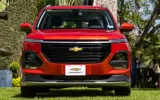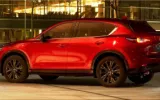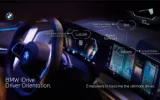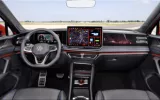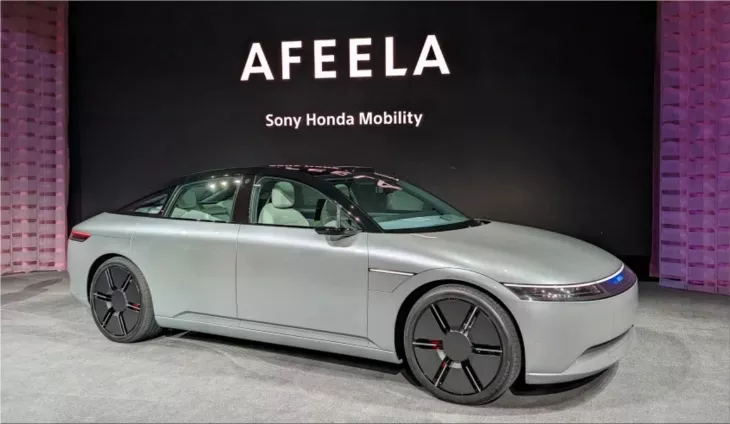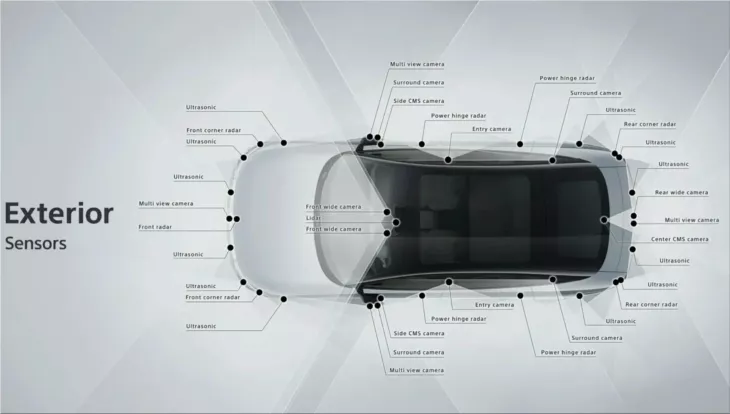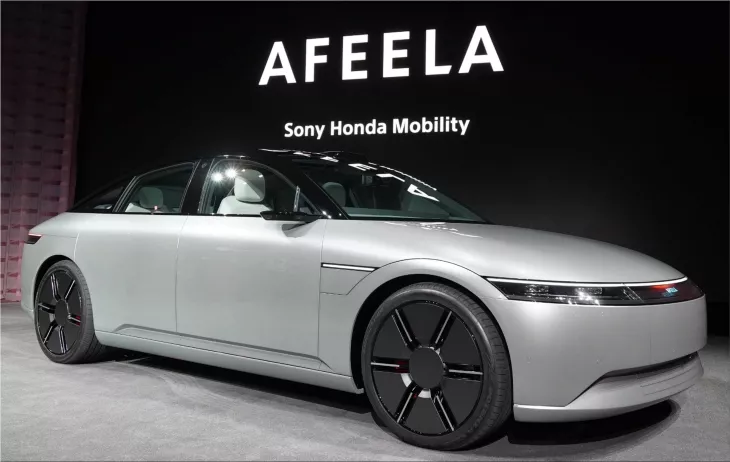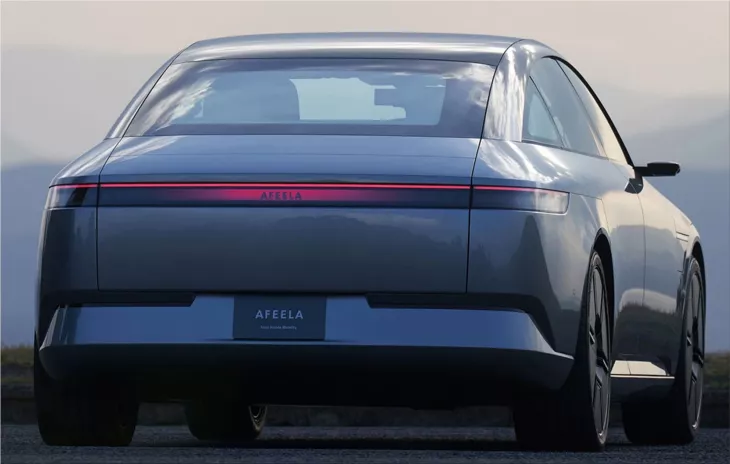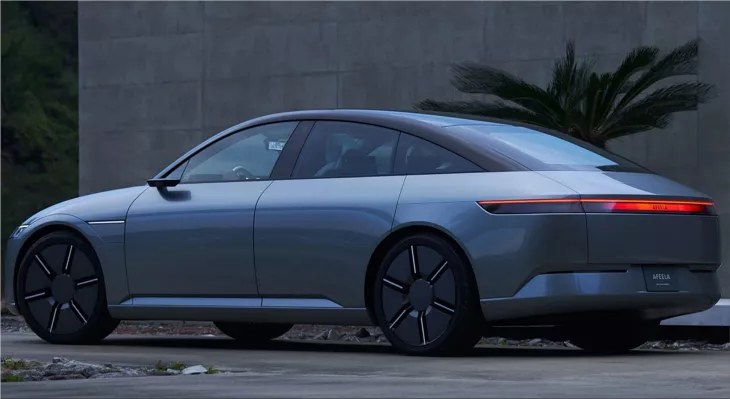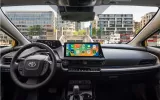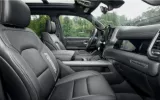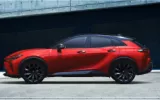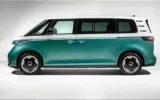Sony and Honda have joined together to launch a new automaker called Sony Honda Mobility, under which they will sell their first joint venture, the Afeela electric vehicle. Earlier this month, the concept car displayed at CES 2023 in Las Vegas was met with a collective shrug. This may be because the sedan is unremarkable, a drab glossy gray color. Nowadays, people aren't lining up out the door to buy cars from car lots.
Perhaps it's because the moniker the two corporations have chosen for their new venture is about as inspiring as a sheet of aluminum foil. Practical and helpful? Absolutely. Instead of talking about how great the car is, people are talking about how terrible the name is. This is what the tennis world calls an unforced blunder, and it's what's slowed down the upstart business. Whoever came up with the terrible name certainly wasn't human, but it seems like a machine made it.
About the Afeela concept car, almost nothing is known at this time. According to Autoblog's estimations, the length and width of the vehicle are comparable to those of the Hyundai Ioniq 6, leading the publication to conclude that two electric motors must power it. A total of 45 Sony cameras and sensors are installed in the prototype vehicle. To be used in Honda's forthcoming auto safety systems. The car's embedded computer chips came from Qualcomm. Sony says the vehicle will have Level 3 autonomy in specific scenarios but will need a human driver's attention in others, such in metropolitan areas where only Level 2 driver assistance would be available.
Cars will be manufactured in a Honda plant in Ohio and sold primarily through the company's website. Production model pre-orders will be taken starting in the first half of 2025, with initial deliveries to North American consumers beginning in 2026. That is bout all that can be said about Afeela. The business has produced a slick, sentimental advert for the car's online functionality and entertainment options. Take note of the video displays installed in place of conventional door mirrors and the full-width screens that go from door to door.
In-depth overage of Afeela can be found on The Verge. It illustrates how the vehicle is just a box, a mobile entertainment center equipped with all the cutting-edge Sony technology that consumers have come to expect. According to executives at Sony Honda Mobility, the automotive industry is the next logical step for Sony's media business, which will allow the company to provide in-car entertainment options like movies, music, TV shows, and games. Sony Honda Mobility COO Izumi Kawanishi told The Verge, "We found out we can construct one additional entertainment place in mobility, like a living room." We have already shipped the Playstation and the Walkman. The mobile industry is a potential new clientele base for us.
'We have been talking about cars migrating into a virtual living room for well over a decade,' Jessica Caldwell, an analyst for Edmunds' automotive division, said. In recent years, the functionality and capabilities of automobiles have gotten more attention than their aesthetic designs.
Tyson Jominy stated, "On the surface level, this is two of Japan Inc.'s best known, finest organizations in their respective sectors joining together." "I suppose the hope is that something miraculous will happen when you bring together a consumer electronics firm with the automotive industry." He continued by saying that Sony "had found a terrific partner, probably one of the bluest chip of blue chip car firms to cooperate with" in Honda due to the latter's stellar reputation for automotive production.
In addition, Jominy remarked, "From Honda's standpoint, they're acquiring a client or consumer to help pay for their own EV development and catch up. Japanese automakers are reluctant to enter the electric car industry, but I think they realize this is where things are heading. From Sony's point of view, this is a seamless integration of their customers' lives, from the dwelling to the workplace to the automobile and beyond. With this new addition, we may conduct our private affairs while on the go."
Sony Honda Mobility CEO Yasuhide Mizuno told reporters at CES that the company is considering leasing its vehicles for up to 10 years, which is far longer than the average length of ownership for a vehicle in the United States today. "Regular OTA software updates and new features will be included in such leases. We can't offer our services for another decade if we sell the vehicle itself, which is a huge commitment if we plan to profit from them. It's a company with a long-term outlook."
Kawanishi elaborated on Sony's decision to enter the automotive industry. It hopes to pursue an innovative business model with the potential to shake things up in the market. He emphasized that "software" is crucial. Our software infrastructure has to be bolstered. This will allow us to offer mobility services in the years to come. The shift from hardware to software is essential for the company's survival.
The goal of Afeela isn't to help dealers make money on individual sales or on servicing the vehicles they sell. According to The Verge, the trend is toward longer leases and finance terms, with owners paying for improvements and amenities gradually over the course of the vehicle's ownership. Tyson Jominy calls the shift to subscription features "inevitable," and he's right: automobile manufacturers need to stay under price limits set by the Inflation Reduction Act so that their vehicles can qualify for tax breaks. Vehicle manufacturers might counteract this by maintaining stable base costs but gradually increasing the number of optional extras for which buyers must pay extra.
According to Izumi Kawanishi, this is very much how the mobile phone industry operates now, with the hardware being less of a focus. It's very much like the market for smartphones. That concept should be implemented throughout the transportation sector. Does the world have what it takes to make such a change? Many businesses, including factories, are doubtless investigating subscription services as a potential source of additional income. It must be clarified if the public agrees with such a view.
Afeela describes itself as "Autonomy, Augmentation, Affinity" on its website. Our expanding freedom of movement is due to the 3As. All the new ideals we hope the world will embrace. Then, it elaborates on each with ethereal language that calms but reveals little.

